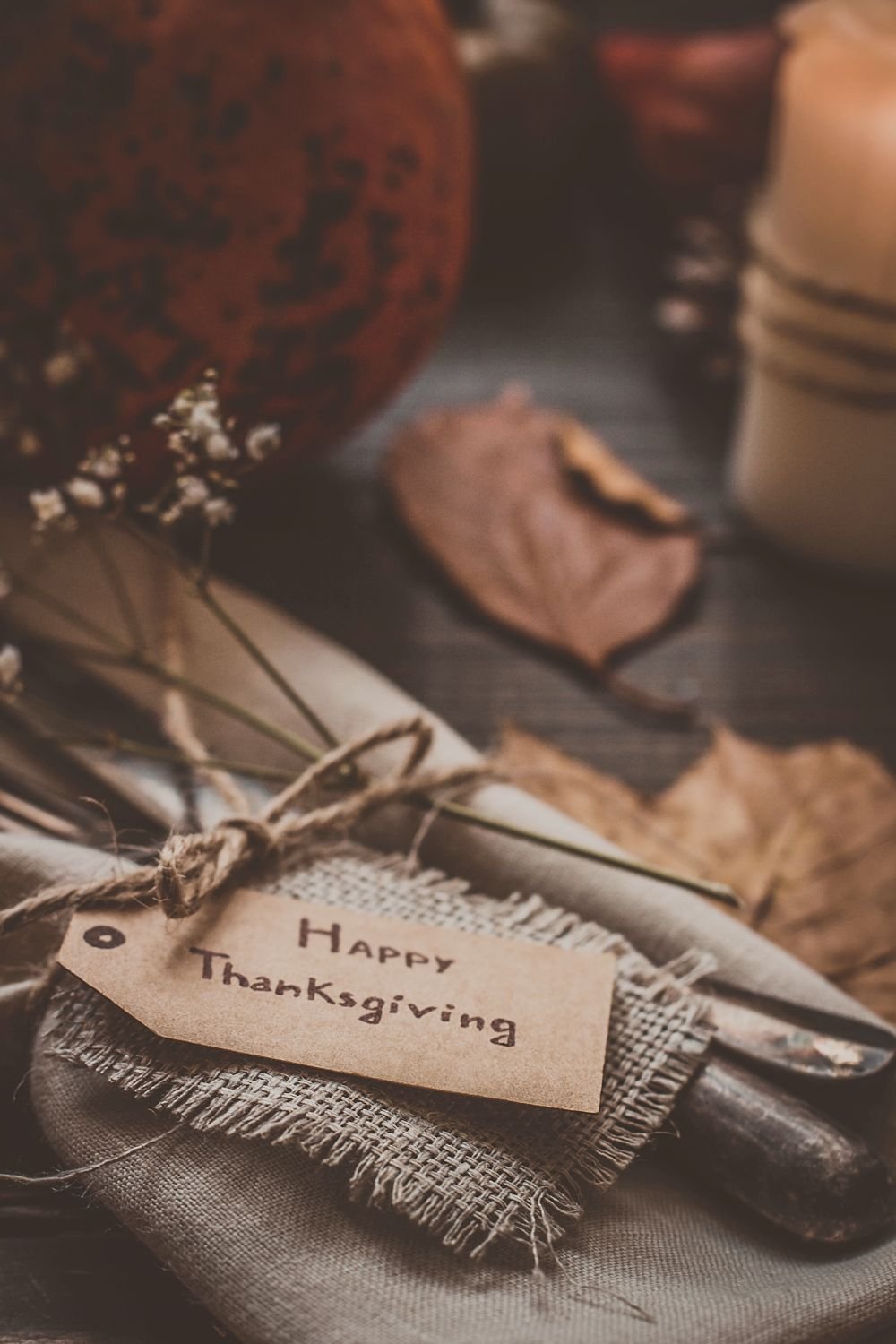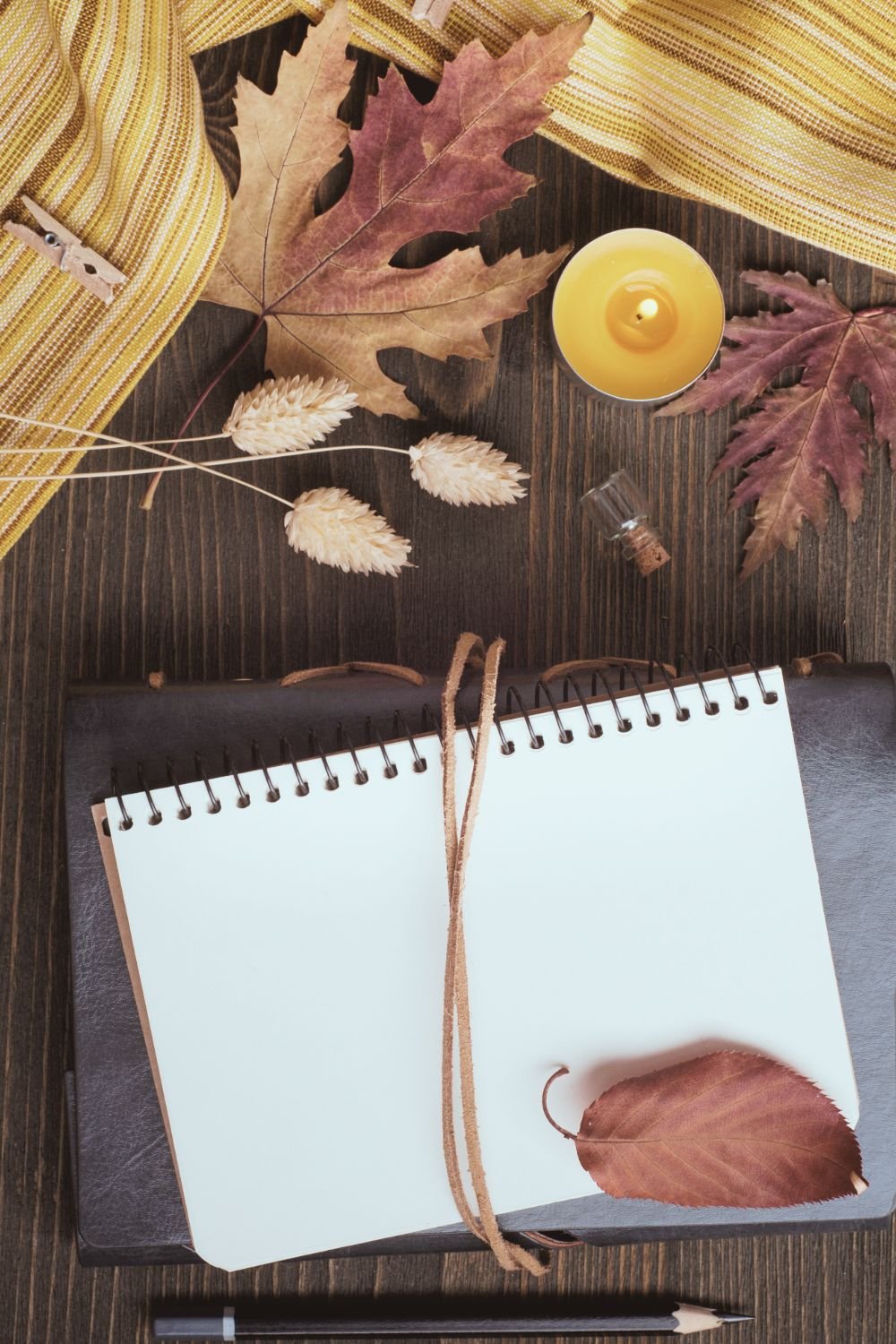Journaling | Intuition Development | Emotional Wellness
Tune In To Your Inner Voice
Access the healing powers of your inner guidance through journaling exercises, daily journal prompts, tools for building intuition, and resources for emotional wellness & emotional healing.

Journal Prompts For December
Journal through the month of December with me with these December writing prompts! These December journal prompts explore a variety of topics. In December, we’ll journal about rest, obligations, the feeling of home, and pivotal life moments, among other topics. We’ll also do a few fun journaling exercises involving poetry, free association, our dreams, and personality tests.
Journal Prompts for December 1st
Write a list of the 5 people you feel closest to right now. For each person, write down a few reasons why you’re grateful to have them in your life.
Journal Prompts for December 2nd
What activities help you feel rested. Why do you think these activities help you to feel rested. Are you happy with how often you incorporate these activities into you life. If not, how can you incorporate restful activities into your life more often?
Journal Prompts for December 3rd
Take the MOTIVES personality test. Do you think the personality test that you took accurately reflects something about your personality? What about the results of the personality test didn’t surprise you? What surprised you? If the personality test resulted in any new insights for you about who you are, what can you do with this information in your daily life?
Journal Prompts for December 4th
How have you changed in the last year? How do you feel about these changes? What led to these changes in your life?

Thanksgiving Journal Prompts For Reflecting On The Holiday
Happy Thanksgiving! Journal through the holiday with me with these Thanksgiving journal prompts. These journal prompts are designed to help you reflect on Thanksgiving memories and traditions and what you’re thankful for, and to help you have a little Thanksgiving fun. Check out the Thanksgiving gratitude prompts for a fun way to practice giving thanks in your journal or around the Thanksgiving table with others.
Thanksgiving journal prompts
What is your favorite Thanksgiving memory from childhood? Write about this memory.
What is your favorite Thanksgiving memory from adulthood? Write about this memory.
What’s your favorite thing about Thanksgiving? Why is this a favorite? What emotions does this favorite thing evoke? What was your favorite thing about Thanksgiving as a child? Why was this a favorite as a child? What emotions did this favorite thing evoke as a child? Are there any similarities between your adult and childhood Thanksgiving favorites?
What are your Thanksgiving traditions? How have your traditions changed over time? Are there any Thanksgiving traditions from the past you’d like to bring back? Are there any new Thanksgiving traditions you’d like to try?

Morning Journal Prompts For Emotional Wellness
Starting your morning with journaling can be a nice way to ease into your day. Journaling in the morning can also help you begin your day with intention and self-connection. In this post you’ll find a few daily morning journal prompts to choose from along with four fun morning journaling exercises that incorporate poetry, music, meditation, and free association into your journaling practice.
Daily morning journal prompts
Here are a few morning journal prompts to start your day with! Choose a few morning journal prompts from the list below and use them every day, or mix up your morning journaling and choose different prompts every day.
How am I feeling emotionally this morning? What do I need emotionally this morning?
How am I feeling physically this morning? What do I need physically this morning?
How are my energy levels this morning? How can I honor where my energy levels are at today?
How grounded am I feeling this morning? (i.e., how in the present moment and connected to my body am I feeling?)
What do I want to accomplish today?
How am I planning to build self care into my day today? In other words, how am I planning to take care of myself today? How am I planning to take care of myself emotionally today? How am I planning to take care of myself physically today?

Journal Prompts For Positive Self Talk
We can be so used to the way that we talk to ourselves that we don’t notice when our self talk is impacting us negatively. When I really started paying attention to the way I talked to myself and questioning my self talk, I was surprised to see how unkind I was being towards myself. Working on changing my self talk was one of the first steps in my healing journey (read a little more about that here, if you’d like). Working on my self talk was part of how I learned to create safety for myself, and this felt sense of safety unlocked the door to a bigger emotional healing journey.
Paying attention to the way I talked to myself and journaling and reflecting on my self talk was very helpful to me, and I hope it will be helpful to you as well. To that end, these journal prompts for positive self talk are designed to help you take an inventory of your self talk, evaluate your self talk and explore the roots of your self talk, and make a plan for creating positive self talk.
Journal prompts for positive self talk
As you work through these journal prompts, keep in mind that some of your self talk may be full phrases or sentences that you consciously say to yourself in your mind. However, some of your self talk might be fleeting thoughts that cross your mind without being fully put into words, and your self talk may even be a pattern of behavior or pattern of emotional response without accompanying words (I like to think of this as the internal equivalent of all the non-verbal cues that get exchanged when you’re communicating with someone else).

Journal Prompts For November
Journal through the month of November with me with these November writing prompts! These November journal prompts explore a variety of topics. In November, we’ll journal about things we’re grateful for, how our concepts of femininity and masculinity impact our lives, the experience of being awed, loving memories, and childhood fears, among other topics. We’ll also do a few fun journaling exercises involving poetry, free association, our dreams, and personality tests.
Journal Prompts for November 1st
What are you most looking forward to this month? What one thing do you most hope to accomplish this month?
Journal Prompts for November 2nd
Write about at time that you had a strong gut feeling. What do you remember about how this experience felt? Why do you think you had such a strong gut feeling? How did you respond to this strong gut feeling?

Get Into The Spirit With These Happy Halloween Journal Prompts
Celebrate Halloween while you journal with these fun Halloween themed journal prompts for adults. These Halloween journal prompts will help you explore Halloween memories and Halloween favorites. We’ll also do a few fun Halloween journaling exercises that involve reading Halloween poetry, a Halloween themed free association exercise, and a spooky creative writing exercise designed to help you learn more about you.
Journal prompts for Halloween
What’s your favorite thing about Halloween? Why is this a favorite? What emotions does this favorite thing evoke? What was your favorite thing about Halloween as a child? Why was this a favorite as a child? What emotions did this favorite thing evoke as a child? Are there any similarities between your adult and childhood Halloween favorites?
What’s your favorite movie to watch to celebrate Halloween? Why is this a favorite? Write about what you remember from the first time you watched this movie.

Find Freedom With These Journal Prompts For Perfectionism
I saw a Gloria Steinem quote that said, “Perfectionism is internalized oppression,” and I thought, “Ugh, that is, unfortunately, very true for me.” It took me many years to realize that my perfectionism stemmed from a traumatic childhood. In fact, it took me many years to even realize that my childhood was traumatic. (You can read a little more about that in my post on What I Wish I Knew Earlier about Healing Psychological Trauma if you’d like.) When I accepted and began to process the ways in which my childhood traumatized me, it was easier to see the ways that I continued to function by the rules of my childhood. In childhood “perfect” behavior was required from me in order to “earn” love and the right to have emotions, set boundaries, and be my own person. The rules were always unclear and ever-changing, and even if they had been clear, I would never have been able to live up to them. The end result was that I continued to endlessly strive to be more and more perfect in every facet of life to earn love and the right to simply be a human with my own emotions, body, and opinions. I’m very much still a recovering perfectionist, but I know that I have the tools now to continue to step away from perfectionistic tendencies and it’s something I’m actively working on.
These journal prompts are designed to help you explore what your perfectionism looks like and the “whys” behind your perfectionism. I hope they’re helpful to you on your journey to overcome perfectionism!

Journal Prompts For October
Journal through the month of October with me with these October writing prompts! These October journal prompts explore a variety of topics. In October, we’ll journal about how emotions feel in our bodies, self-care, self-talk, happiness, fear, and our relationship with time, among other topics. We’ll also do a few fun journaling exercises involving poetry, free association, our dreams, and personality tests.
Journal Prompts for October 1st
Write out something positive you commonly say to yourself. Write out something negative you commonly say to yourself. How does hearing the positive phrase impact you? How does hearing the negative phrase impact you? Were there other people in your life who first said these things to you?

Intuition Meaning: Psychologists, Scientists, and Artists On The Meaning Of Intuition
Fittingly, intuition is one of those things that’s easier to sense than it is to define, but reflecting on what intuition means can be helpful to developing intuition and learning how to effectively use intuition in your daily life. To me, intuition means using the full knowledge of my body, not just what is consciously in my mind right now, or what I can consciously recall at this moment. Intuition is a “just knowing” feeling, but it also more than that. Intuition has its own language of sorts.

Get To The Root Of Your Anxiety With These Journal Prompts For Anxiety
When I’m feeling anxious, I’m usually tempted to “run away” from the anxiety by ignoring that it’s there. Unfortunately, this doesn’t usually help to resolve my anxiety or the underlying reasons I’m anxious, and even worse it tends to cause my anxiety to build up until it feels large and unmanageable. I have found that taking deep breathes, running cold water over my wrists and/or face, and leaning into the anxiety and expressly acknowledging to myself that I’m anxious helps. Making these coping mechanisms a habit has helped my anxiety, and learning to acknowledge and lovingly accept my emotions as they arise has helped reduce my overall instances of anxiety.

Take The Quiz: What Type of Journal Should You Keep?
There are so many different types of journals out there, and there really is no wrong way to journal! The type of journal you should keep depends on why you want to journal, what your goals for journaling are, and how much time and energy you have for journaling. Take this quiz to find out what type of journal you should keep and then check out the information below for journaling ideas based on your quiz results.

Cherish Your Memories With These Memory Journal Prompts
Keeping a memory journal is a fun way to reflect on your life and to safekeep memories so that you can revisit them and reminisce later. Keeping a memory journal can also help you see patterns in your life. When you keep a memory journal you will begin to see what moments in your life feel the most important to you, what you value in life, and how your daily experiences impact you and string together to create the story of your life. If you’ve ever considered writing a memoir, keeping a memory journal is also a great way to get started. With a memory journal, you’ll have plenty of inspiration to pull from for a memoir in the future.

A Real Life Dream Journal Example Entry Illustrating The 7 Key Elements Of A Dream Journal Entry
How to start a dream journal
Starting a dream journal might seem a little daunting, but once you get into the hang of it, dream journaling can be a really interesting and rewarding journaling practice. When you’re starting a dream journal it can help to see a dream journal example to get some ideas. I enjoy dream journaling because I like working with symbolism and it’s a great way to learn new things about myself. Dream journaling is also a wonderful way to get insight into the emotions and experiences that your mind, body, and soul are focused on working through. When you’ve been dream journaling for a while, you might be surprised to find out what’s going on with you at the deepest levels! Dream journaling also helps you tap into your intuition and learn the language of your subconscious mind which yields great benefits in waking life, too.

Harness The Power Of Your Intuition With Journal Prompts For Decision Making
These journal prompts are designed to be an intuition development exercise using active imagination to help you make a hard decision or work through a difficult situation.
Using active imagination to enhance your intuition
When you are facing a difficulty it’s a good time to consciously work on accessing your intuition. Developing your intuition means learning how to access all of the knowledge that your body has, rather than just the knowledge you can consciously remember right now with your mind. The more we can tap into everything we know and feel about ourselves and the world around us when making a decision, the happier we will be with the decision we make.

Nestle Up With These Journal Prompts For Fall
Autumn brings a new routine for many people, but even if your routine will stay the same, the changing of the season tends to bring a newness that invites reflection. Fall is my favorite season, it brings to mind the sound of crunching leaves underfoot and geese honking overhead, cozy sweaters, warm drinks, the smell of bonfires, and the taste of pumpkin bread. Of course, not all fall memories are sweet; it also brings to mind the dreaded fall allergies, and a few bittersweet feelings about autumns past. Whatever your feelings about fall, it can be great time to pause and reflect.
I invite you to grab your journal and reflect on the end of summer and the beginning of fall. If it feels helpful, use the journal questions below to start.

What Is Shadow Work?: How Your Shadow Self Can Free You To Live Authentically
Your shadow contains everything you don’t know about yourself, so how can you meet your shadow self?
What does “shadow self” mean?
Psychologist Carl Jung described the shadow as unconscious aspects of personality. These shadow parts of our personalities are not necessarily good or bad, they are simply parts of who we are that we aren’t aware of. The shadow self is composed of aspects of our personalities that it feels too scary to see. Our shadows are made up of parts of ourselves that we don’t think should be there for whatever reason. Our shadow selves could contain desires we don’t think we should have, emotions we don’t think we should have, and needs we don’t think we should have. The idea that these aspects of our personalities are undesirable might come from childhood, our culture, or significant experiences or relationships in our lives.

Journal Prompts for Shadow Work: Do You Judge Yourself?
What does it mean to judge yourself?
Here are some common examples of self-judgement: Going over a conversation or interaction in your head afterwards and chiding yourself for something you said or did. Berating yourself after you express an emotion or show vulnerability. Holding yourself to a standard of perfection and picking apart everything you could have done better. Being hard on yourself when you forget to do something or when you don’t know how to do something.

Surprise Yourself With These Journal Prompts for Self Discovery
How is it possible that sometimes we surprise even ourselves?
It may seem like an obvious truth that we know ourselves, and to a certain degree, this is inevitably true. After all, you’ve spent your entire life as you! Yet, we have all had life experiences - no matter how mundane those experiences may have been - that we simply don’t consciously remember. Sometimes we’re surprised by our reaction to a situation, or we forget that a particular activity makes us happy. It’s easy to lose touch with parts of ourselves or to lose ourselves in relationships, work, people pleasing, busy schedules, or simply the ebb and flow of daily living. Our relationship with ourselves is the most important relationship in our lives.

Mindfulness Prompts for Connecting With Your Body
What does it feel like when your mind and body are connected?
The way in which our minds and bodies interact with each other has a profound impact on our daily lives and our physical and emotional health. Spending some time reflecting on our mind-body connection in a big picture sense can help us to identify what’s working for us and what’s not when it comes to cultivating mindfulness in our daily lives. I invite you to explore - and journal about - your mind-body connection. If it feels helpful, use the journal questions below to start.

Journal Prompts for Connecting With Your Intuition
How do you know when you’re connecting with your intuition?
Intuition is knowledge that comes from our bodies. Intuitive knowing is different than the knowing that comes from intellectual, logical, step-by-step processing. Both types of knowing are important for our daily lives, but intuition is a type of knowledge commonly denigrated in modern culture and therefore more easily dismissed as untrustworthy or unimportant. Disregarding our intuition prevents us from accessing important information and a deeply meaningful aspect of what it means to be human. Moreover, intuitive ways of knowing exist within each of us even if we dismiss or disregard this type of knowing; by being aware of the role of intuition in our lives we can learn to harness this way of knowing to assist us in our daily lives and we can avoid being unconsciously driven by intuitive forces that we have no conscious means of conversing and interacting with.


